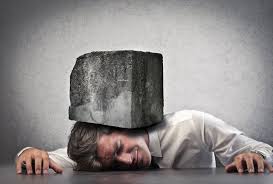Stress is largely misunderstood, which could be dangerous for people who might be suffering from its effects. We’ve compiled a list of questions and answers about stress to better educate you; these are the questions that you should be looking for an answer to but might not even know to ask. By the time you’re done reading this, you should be ready to answer these questions yourself:
1. What is stress?

Stress is the feeling you experience when your body prepares a response to perceived danger or some other situation that requires urgency. Hormones are released immediately, and these hormones not only speed up your heart rate, making you to breathe faster, but also give you a burst of energy. In very simple terms, stress is your body’s way of helping you prepare in situations where your brain thinks you might need some extra help.
2. Is stress bad all the time?
No, stress is not always bad. As we just said, stress is a mechanism used by the brain to enable you overcome dangerous or challenging situations. However, stress can also be bad, particularly when it becomes chronic, or results in constant fear and paranoia. If you’re always stressed, the risk of you having a heart disease or condition, increases.
3. What causes stress?

There’s no particular source of stress and the answer to this question usually varies from individual to individual. It could be caused by too much pressure at work or school, simply because you’re not getting enough rest, or even by the memory of unpleasant events from the past.
4. Are there differing types and severity of stress?

Basically, there are two types of stress: Acute Stress/stress reaction and chronic stress. Acute stress/ stress reaction is the immediate response your body gives in the presence of danger. It rises rapidly, causing you to breathe faster and boosting your energy levels, and then it subsides after a time and allows your mind and body return to their normal state. A stress reaction can be more or less intense, and more or less prolonged, depending on the severity of the stressor.
Chronic stress, on the other hand, is a persistence of the stress reaction, which continues at or near its peak without return to the normal relaxed state. While the body can handle acute stress very well, and even performs better under such conditions, it is not designed to accommodate it on a sustained basis and this could lead to severe health complications. The severity of chronic stress depends on the stressor that first triggered it, the continuing stressors that maintain it, and on the lack of any real resolution. Chronic stress is what most people refer to when they complain of suffering from stress.
5. Can chronic stress be prevented?

Stress can be prevented from becoming chronic, especially in children and young adults. The most important thing in prevention of chronic stress is identifying the major stressor and if you can identify this, the next step would be trying to avoid these stressors as much as possible. Another helpful way of preventing chronic stress is by exercising, eating healthy and managing your time more efficiently.
6. What are the risks associated with stress?

The risks associated with stress are minimal at the acute stage; chronic stress, however, carries physical, biological and social consequences, and could lead to so many illnesses, such as stroke, high blood pressure, and other heart conditions. It can also result in psychological disorders like, bipolar disorder, anxiety, depression, and etc. Chronic stress can also have emotional, behavioral and cognitive effects which can affect your work and communication with others.
7. Can medication help lower my stress level?

The simple truth is, no. One thing you must understand about stress is that it’s not a disease so technically it cannot be cured. There are , however, some medication that can help you manage the symptoms of stress (such as headaches, diarrhea and constipation, etc) without really lowering your stress levels, but it is always better to learn to manage stress though relaxation, exercise and other stress management techniques.
Conclusion
Medication can be helpful for many things, but usually not for dealing with stress. Some people take tranquilizers to calm them down immediately, but it’s far better in the long term to learn to manage your stress through relaxation or stress management techniques. Be careful not to confuse stress with anxiety. If you suffer from anxiety, speak with your doctor about a treatment or management plan(which might include medication).
A professional fitness instructor will be able to help you design a personalized fitness plan that will help you relieve stress and achieve your weight loss or fitness goals. If you would like to hire one, please get in touch with us at:
WhatsApp number: +971565830067 (Just send us code 5147and we will get back to you ASAP)
Contact Us: Click here to send us your details or fill in the form below.
You can get in touch with us 24/7 and one of our experts will not only give you a free consultation but also help you pick out an appropriate male or female personal trainer to meet your needs. One-on-one personal training lessons are available in Dubai, Abu Dhabi, Sharjah, Ajman and RAK.

